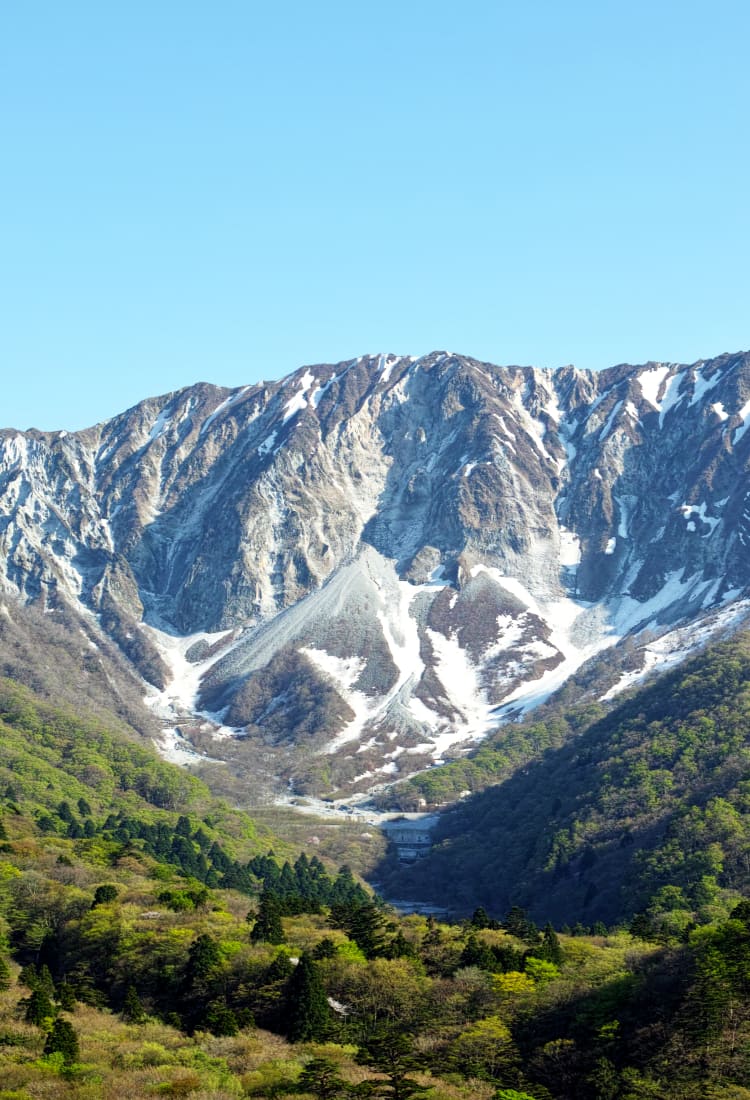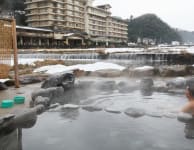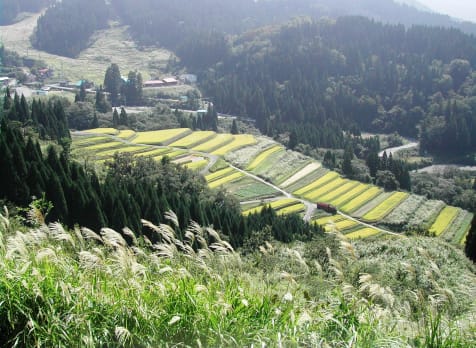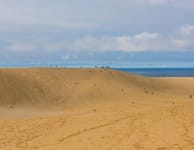

TOTTORI Mt. Daisen & Around A paradise for leisure and outdoor sports enthusiasts
A paradise for leisure and outdoor sports enthusiasts
One of western Japan's best-kept secrets, evokes comparisons with Mt. Fuji . With far fewer visitors, and pristine forests supporting a rich environment, the mountain provides fantastic hiking throughout the year, and some of the best skiing on the west coast in the winter.

Don't Miss
- Amazing hiking trails
- Spectacular views of the Sea of Japan
- Viewing seasonal foliage from the observatory point at Kagikake Pass
How to Get There
Mt. Daisen is accessible by bus from Yonago Station.
Local buses operate around five times a day between Yonago Station and Mt. Daisen. A loop bus runs from Yonago Station to Daisen's main tourism spots during peak season, weekends and holidays.
Quick Facts
The mountain has an elevation of 1,709 meters
Its name means “Great Mountain”
Considered one of Japan's top three peaks

Better than Mt. Fuji?
In a survey conducted by NHK, Japan's national public broadcasting organization, Mt. Daisen ranked third in its “Japan's Greatest Summits' rankings, behind Mt. Fuji and Mt. Yari.
However, with far fewer visitors than Mt. Fuji , rich history and vegetation stretching to its peak, this "mini-Fuji," Mt. Daisen, is for many visitors, a more rewarding and personally enriching trip.
Spectacular hiking trails
The mountain is crisscrossed by a network of hiking trails that vary greatly in length, and technicality. You can find basic maps and instructions at the Daisen Information Center for the most popular and easily navigated courses.
Local guides are highly recommended for the more adventurous and remote courses. Daisen's highest peak has become unstable following earthquakes in recent years and access to it is dangerous and thus forbidden.
Tackling the peaks
The Natsuyama hiking course is a good choice for a first climb of the mountain. Head across the Daisenji Bridge (next to the Montbell store), then follow the road around as it curves around to the left. The Natsuyama Climbing Course will be on your left and starts up a short path and then some steep stone stones past a temple.
The course continues through beech forest and patches of yew until you reach the tree line. From here continue up steep rocky paths until you reach a series of boardwalks which take you to Misen Peak. From there, enjoy views of the Sea of Japan and Miho Bay to the north, and the peaks of the Chugoku mountain range to the south.
A loop route down the mountain leads across a beautiful stony river plain, through the woods to Ogamiyama Shrine, and down a cobbled and ancient road to Daisenji Temple .
Allow around 3-5 hours for the return journey, with extra time needed for the loop route.
Hitting the slopes
Based around the Daisen White Resort, the mountain has everything from black diamond ski runs to small practice slopes. In recent years, a number of companies have begun offering snowshoeing tours through the forest and along ridges. For more information call in at the information center.
Sacred isolation
Mt. Daisen, or “Great Mountain,” has been worshipped for millennia. Formerly known as Ogamiyama, or “Mountain of the Great God,” the god in question is Kagutsuchi-no-mikoto, the god of fire.
The holy mountain was an important training site for mountain ascetics and public access was strictly prohibited until the late 19th century. As a result, the beech forests were able to flourish. These forests act as an important filter for the mountain's famous water supply which is bottled and sold all over Japan.






























































